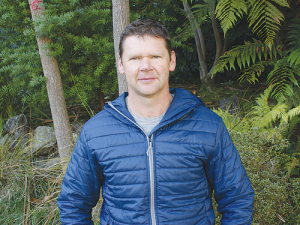Copper deficiency was once known simply as ‘ill thrift’ -- a vague description of what animals could look like when suffering it, with hairy coarse coats, poor milk production (if dairy cows) and even diarrhoea. In young stock poor coat condition and diarrhoea can also be accompanied by poor post-weaning growth rates.
A deficiency in copper has long lasting, deep rooted effects on animals, limiting their red blood cell formation, nerve development and bone growth.
The odds that cattle in NZ will lack enough copper in their diet are generally high, given the hefty reliance upon pastoral feed in most farm systems.
A nationwide AgResearch study of pasture and trace elements done on 1124 pasture samples between 2001 and 2006 identified copper as the trace element stock were most likely to be deficient in.
The scientists reported 75% of pastures will not meet the cattle daily requirement for copper, falling short in only meeting about 80% of cattle’s daily requirement of 10mg/kgDM.
The 75% of sampled pastures falling short of copper supply easily outstripped the next most deficient trace element selenium (24% of pastures) and cobalt (18%).
This figure may surprise many farmers, in being much higher than the mere 4% of pastures reported as being deficient in meeting the copper needs of sheep.
Copper is an interesting trace element, and there would be few places in NZ where pasture would be supplying sufficient levels of it; the west coasts of both islands are particularly problematic. And we are increasingly finding deficiencies in parts of Otago and Hawke’s Bay.
Farmers who may have applied molybdenum in past years must be particularly wary about copper levels. The AgResearch study noted that increased uptake of pasture higher in molybdenum can reduce an animal’s ability to absorb copper. Almost a quarter of pastures sampled recorded molybdenum levels over 1mg/kgDM, sufficient to cause reduced copper uptake.
There was a trend some years ago for farmers to apply molybdenum in fertiliser, and we are still seeing the effects of those elevated molybdenum levels coming though. Elevated sulphur levels can also limit an animal’s uptake of copper.
Further complicating the deficiency in the North Island, copper levels can also be compromised in late autumn after a season of preventative zinc dosing for facial eczema. After waiting for a couple of weeks after zinc treatment runs out, it is worth looking at copper levels; it is important to have a gap before treating for copper, given the risk of negative interaction that comes from administering close to zinc treatment.
There is a greater level of complacency among dairy farmers in particular in recent years about copper deficiency. This has come about partly through greater use of palm kernel extract (PKE) as a supplement. Valuable as a supplementary feed source for the last 15 years, PKE’s high copper level has proven a welcome trace element bonus. So as a result it has slipped a bit off the radar in terms of animal health issues.
Form of insurance
Copper administration can be via bullets, injections drenches or in line dispensers.
Farmers are increasingly comfortable administering long-acting Copacap drench boluses to cows and young stock, ensuring a sustained long term release of the vital trace element.
Facilities for handling stock have got a lot better, and animals are more familiar receiving boluses, which helps take some of the stress out of it. You also avoid the risk of swelling or reaction that can accompany a needle injection of copper.
Bolus drench capsules provide a measured release of the trace element, reducing any risk of toxicity at administration.
For the cost of testing and treating, the returns for addressing copper are significant. You don’t know what levels you will get from one year to the next, so it’s like a form of insurance.
The cost of testing and treating for copper deficiency is far less than the cost of feeding stock high quality supplement through winter and early spring, only to have little growth result because of a simple deficiency.
• Richard Sides is technical veterinarian at Boehringer Ingelheim Animal Health NZ.
















